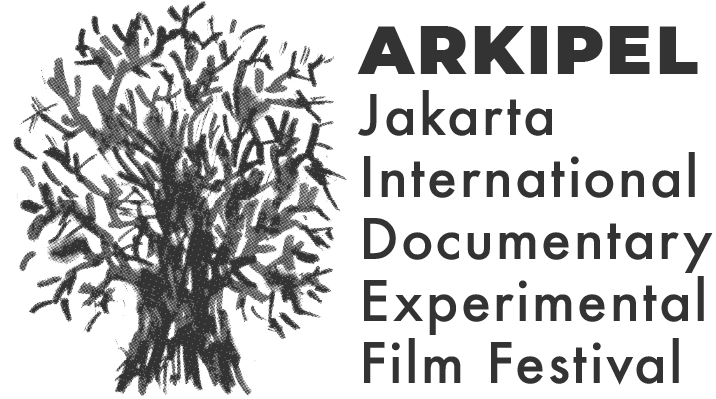Untuk Mempelajari Masa Depan, Harus Bisa Mempelajari Masa Kini Sebagai Masa Lalu
Setelah sekian lama ditunda, Forum Festival akhirnya kembali lagi mengadakan simposium, kali ini dilaksanakan secara daring. Jika tahun-tahun sebelumnya diadakan dalam auditorium yang besar dan dingin, penonton kali ini bisa mengikuti forum dari ruang Zoom Webinar pada Jumat (6/11) sore. Selain hadir dalam ruang Zoom Webinar, acara ini juga disiarkan secara live via YouTube Jurnal Footage. Dalam ruang Webinar Zoom, tercatat kurang lebih terdapat 300 hadirin yang telah melakukan registrasi yang hadir dalam acara ini. Sedangkan pada live Youtube, sampai dengan berita ini ditulis (8/11), tercatat terdapat sekitar 386 penonton. Pembukaan Forum Festival diawali dengan pembahasaan “Melihat Masa Kini Sebagai Masa Lalu” oleh pembicara utama, Dr. Hilmar Farid.
Forum Festival dimulai dengan kata sambutan dari Direktur Festival ARKIPEL,Yuki Aditya yang menyambut penonton dan berterima kasih kepada tamu pembicara atas kehadirannya. Ia menjelaskan sedikit mengenai kepentingan Forum Festival sebelum dilanjuti oleh Hafiz Rancajale, selaku Direktur Artistik ARKIPEL. Mereka dengan senang hati mempersembahkan Dr. Hilmar Farid. Sebagai pegiat seni dan budaya, Dr. Hilmar Farid merupakan Direktur Jenderal Kebudayaan di KEMENDIKBUD (Kementerian Pendidikan dan Kebudayaan).
Dr. Hilmar memulai pembicaraan dengan memberikan pengertian pribadi terhadap yang dimaksud dengan Zona Temaram. Menurutnya, Zona Temaram merupakan permainan ruang yang penuh ketidakpastian. Memahami Zona Temaram adalah untuk membaca dunia yang kompleks tanpa tolak ukur yang sentral. Imperialisme dan kapitalisme memberikan sebuah struktur untuk memperjuangkan sistem yang sentral. Salah satu contohnya adalah bagaimana pelaksanaan New Normal pada dasarnya masih berupaya mempertahankan apa-apa yang bisa dipertahankan dari kewajaran lama. Dengan kata lain, tidak ada yang berubah. Dalam hal ini, ide sentral yang berupaya dipertahankan terutama terkait dengan kelangsungan ekonomi. Padahal di sisi lain, situasi ini juga merupakan kesempatan untuk mengulik ulang proses ekonomi dan akumulasi kapital yang tidak terkendali dan berdampak pada daur hidup sosial maupun daya dukung lingkungan.
Menurut Dr. Hilmar, agar bisa maju secara sistem dan menawarkan sesuatu yang berbeda, kita pun perlu bisa melihat masa lalu. Ia mencontohkan teori-teori Marxisme yang sempat dianggap sudah usang dan tidak relevan lagi, tetapi setelah dianalisis kembali ternyata ada ide-ide yang sangat berguna untuk sekarang. Artinya, masa kini bisa terlihat sebagai masa lalu dan dengan melihat masa kini sebagai masa lalu, kita bisa melihat masa depan. Untuk lebih memahami konsep tersebut, Dr. Hilmar menggunakan konteks pembuatan filem.
Kamera merupakan mata yang mencoba menangkap realita, namun kamera tidak bisa sepenuhnya memperlihatkan kenyataan. Yang terjadi dalam filem, terutama filem dokumenter, adalah fragmen-fragmen yang direkam yang disusun kembali untuk menghasilkan gambar yang lebih jelas. Mungkin saat merekam belum bisa terlihat masalah yang jelas, baru setelah menyusun kembali rekaman-rekaman tersebut akan terlihat sebuah masalah yang lebih kompleks. Maka itu, Dr. Hilmar berpandangan bahwa untuk bisa melihat masa depan, maka harus bisa menyusun fragmen-fragmen masa kini dan masa lalu.
Pada sesi tanya jawab, terdapat cukup banyak pertanyaan yang masuk, di antaranya terkait dengan nasib industri kreatif, negara yang serba kapital serta terkait Artificial Intelligence (AI). Jawaban dari Dr. Hilmar cukup sederhana, yang penting adalah kesiapan untuk terbuka terhadap disrupsi dan masalah karena faktornya sangat banyak.
Untuk menutup pembukaan, Dr. Hilmar hanya ingin mengingatkan penonton bahwa Pandemi ini bersifat historis, maka selain memikirkan keselamatan dan keamanan, kita pun harus memikirkan langkah-langkah yang bersifat historis juga.
Perceiving The Present as The Past to Study The Future
The long-overdue Forum Festival returns to hold another series of the symposium, this time being held online. While the previous events had been held in vast and cold auditoriums, this year, the audience could join the discussion through a Zoom Webinar room on Friday (11/6) afternoon. In the webinar room, approximately 300 registered attendees came to this event. Meanwhile, on YouTube live, until this report was written (11/8), there were around 386 viewers. Forum Festival started with a keynote speech by Dr. Hilmar Farid, titled “Future Traditions: Perceiving the Present as the Past”.
Yuki Aditya as the Festival Director of ARKIPEL, opened the festival with a speech to welcome the audience and thank the speakers for their participation. He spoke about the significance of Forum Festival, followed by Hafiz Rancajale as the Artistic Director of ARKIPEL, they happily introduced Dr. Hilmar Farid to the audience. As an art and culture activist, he holds the position of General Director of Culture at KEMENDIKBUD (Ministry of Education and Culture).
Dr. Hilmar started with his personal understanding of the Twilight Zone. He explained that it is an uncertain game of spaces. Understanding the Twilight Zone is to understand the complex world without an epicentre. Imperialism and capitalism provide a structure for this central system. One example is how the implementation of the New Normal has only attempted to maintain the previous normalcy. In other words, nothing changes. The central idea that is sought to be defended is mainly related to economic sustainability. Yet, this situation is also a chance to re-examine the uncontrolled economic processes and capital accumulation which impacts our social life cycle and the carrying capacity of the environment.
Dr. Hilmar suggests looking back in order to move our system forward and offer another way. For example, some Marxist theories, which are considered irrelevant and obsolete, can be re-analyzed to gain a role in our present conditions. Therefore, the present can be perceived as the past to understand our future. To look into the concept, he used the context of filmmaking.
The camera is the eye that tries to capture reality, but it cannot fully convey reality. What happens in films, especially documentary films, are the rearrangement of pre-recorded fragments to produce a clearer image. There might be problems that went undetected during the recording process, and only when we rearrange the footage that we see a complex problem. So, Dr. Hilmar explained that to see the future, we must be able to compile the fragments of the present and the past.
Some questions came in during the discussion session, including the ones related to the fate of the creative industry, the capitalist state, and Artificial Intelligence (AI). Dr. Hilmar answered that it is quite simple, emphasizing on our readiness to be open towards disruption and problems because there are many other factors to consider.
In conclusion, Dr. Hilmar reminds the audience that this pandemic is a historical event, so aside from paying attention to safety and security of our health, we must also think about historical steps to counter it.






